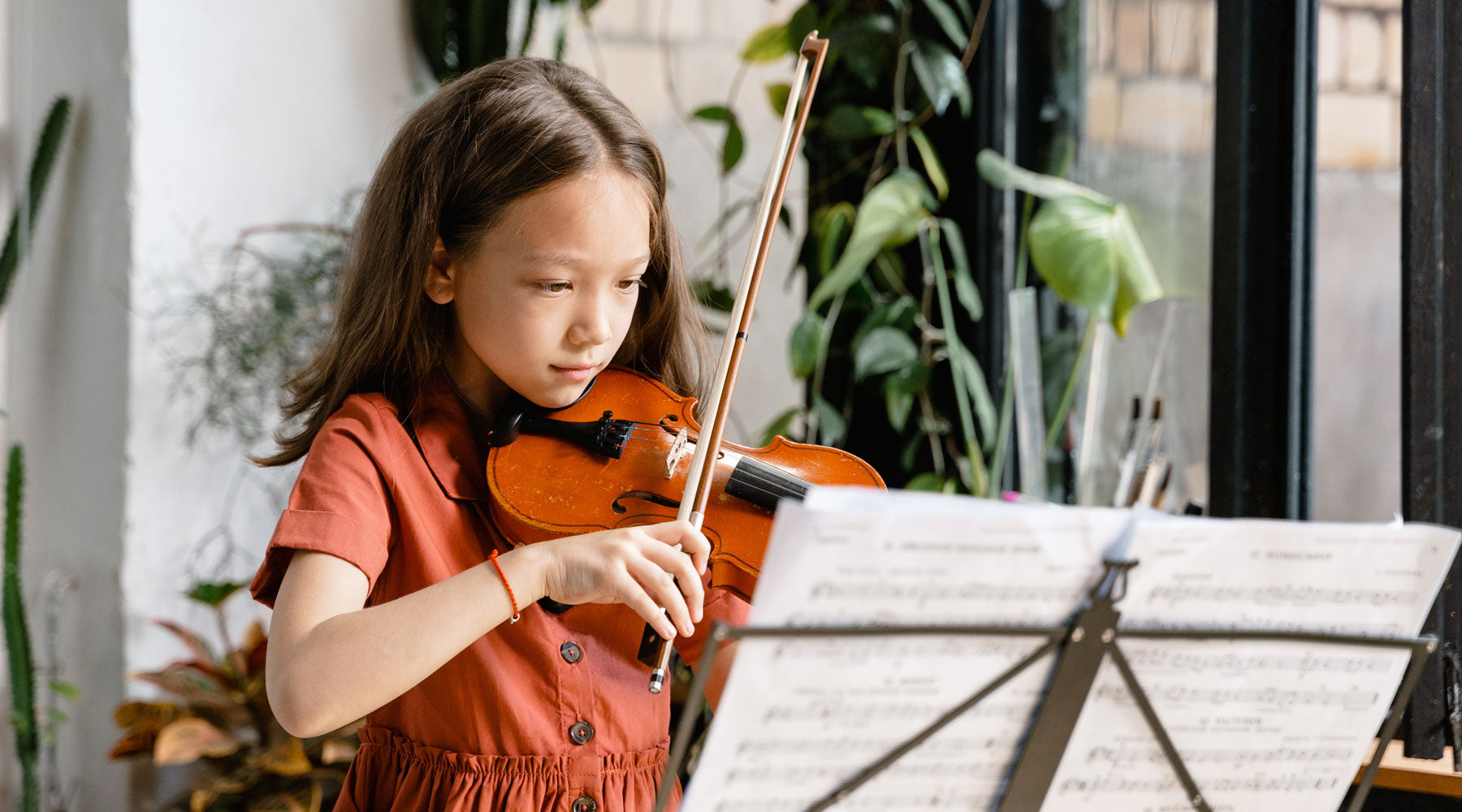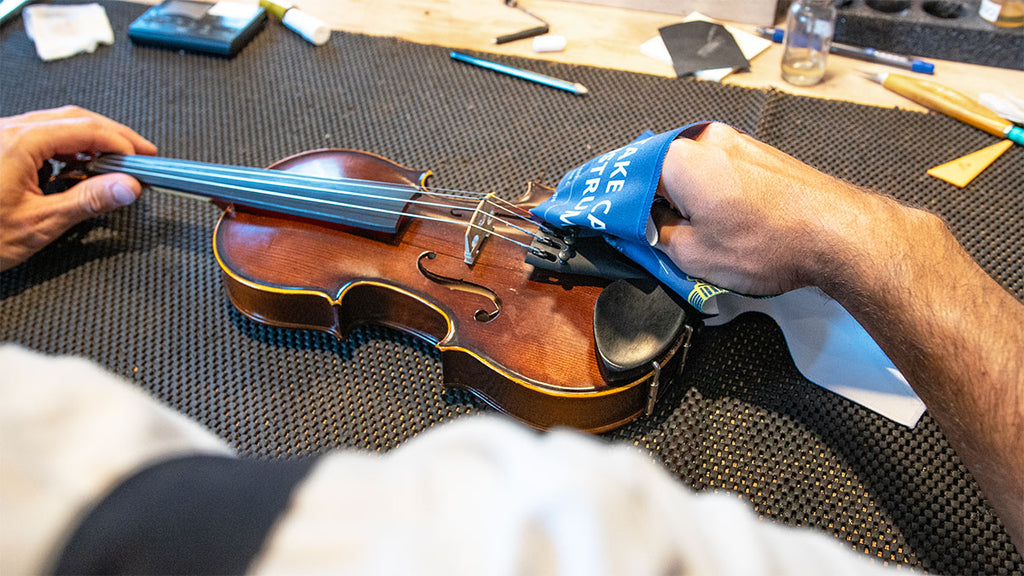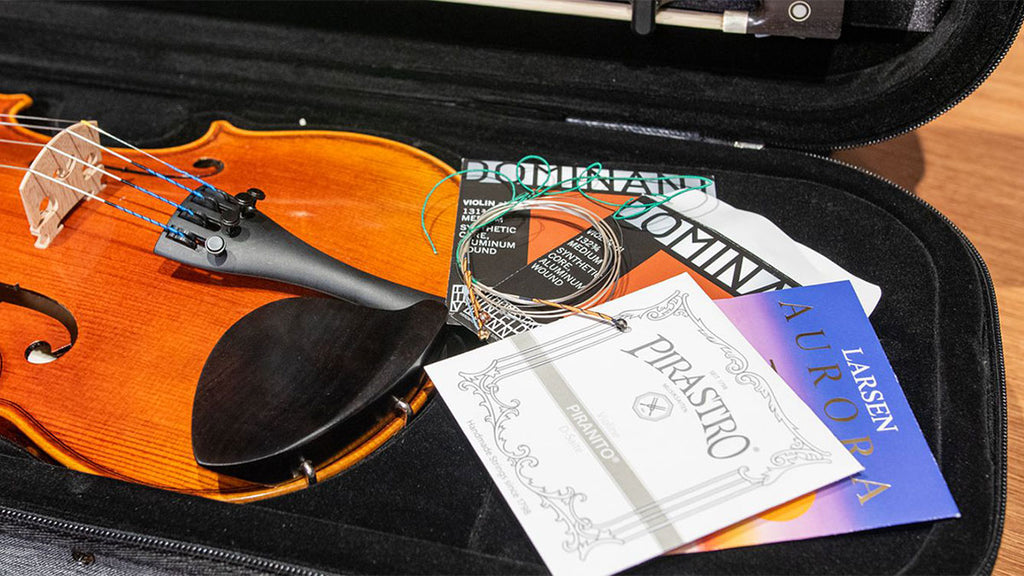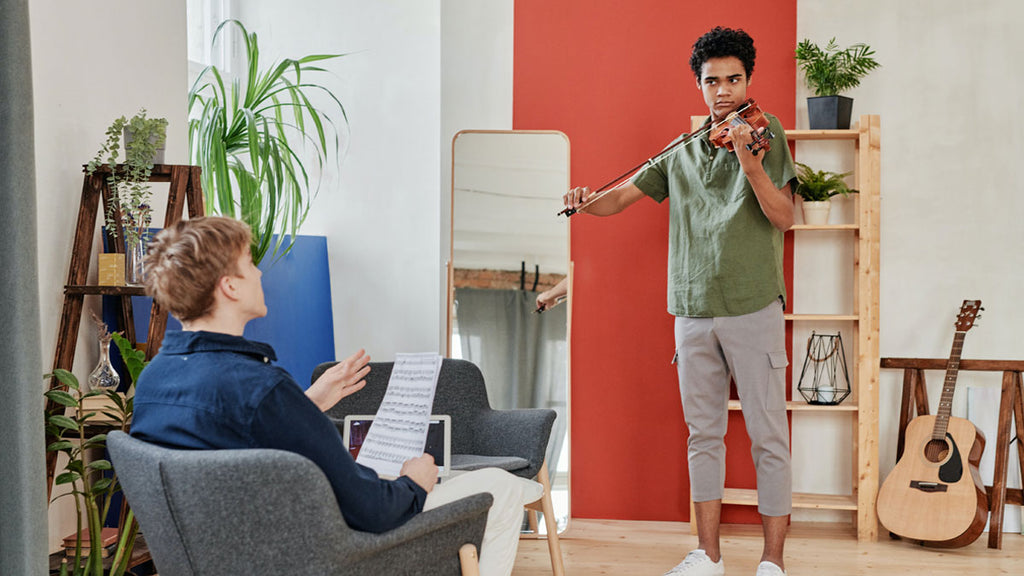BOOK AN APPOINTMENT
Book an Appointment

As some sheet music pieces can take weeks, if not months to arrive, we recommend ordering your repertoire at least six months prior to your scheduled exam. This will ensure you are well prepared with all the original copies well ahead of time, eliminating any stress of last-minute scrambles to locate music and minimising the risk of using incorrect versions.
We also suggest organising all your sheet music neatly in a designated folder or bag to keep everything easily accessible. Having your music well-organised means there is one less thing for the player to worry about and will help create a calmer, more relaxed atmosphere in the exam room.
Shop Sheet Music | Shop Sheet Music Bags


If you’re doing a high-level exam and want to achieve the best sound possible from your instrument, we recommend getting a full-string replacement and bow rehair. This will give your instrument a fresh, vibrant sound, and provide more control when performing more complicated bow strokes like spiccato or sautille.
Bow rehairs can take up to a week to complete, so it is recommended to get this done at least two months prior to your exam date. This will save you from being out of action in the final weeks coming up to your exam when you’ll likely be doing more practice.
New strings should be installed at least 2 weeks prior to any exam or performance. This is because they take time to stretch, and while they are settling in, they will constantly be going out of tune. Considering this, we strongly recommend keeping your old strings on if you’ve left string changing too close to your exam date, unless, of course, you have a broken string that needs to be replaced.
Book your instrument in for a service or string change | Read more about instrument servicing
It is Murphy's law that strings will break at the most inconvenient time! And of course, this is sure to be right before an important exam or performance.
To ‘play it safe’, we recommend keeping a spare set of strings inside your case (or at least the two top strings) ‘in case’ of an emergency. This will eliminate the stress of having to search for replacements last minute if a broken string does occur. The two highest strings are the most likely to break and so many players only keep these as spares - For violin, these are the E and A strings, and for viola and cello, the A and D strings.
Booking your instrument in for a service and a string change a couple of weeks before your exam, will not only revitalise the sound of your instrument but will also decrease the risk of strings breaking due to wear. Plus, if you do decide to replace your strings prior to your exam, you can keep your old strings as your spare set! It’s a win-win!
Book your instrument in for a service or string change | Shop Violin Strings | Shop Viola Strings | Shop Cello Strings | Shop Double Bass Strings
Practice performing your exam pieces in front of a small audience of family and friends. This simulation helps you get accustomed to playing under a bit of pressure.
Feedback from your practice performances can provide valuable insights into areas that need further refinement. It's a chance to fine-tune your interpretation and build the confidence you'll need on exam day.
When practising or performing, it is important to have the right set-up – one that is familiar, comfortable, and reliable. This can include a sturdy music stand, a comfortable chair that is set at the right height (for cellists and double bassists), a non-slip spike stopper (for cellists) and a comfortable shoulder rest that won’t fall off your instrument (for violinists and violists).
To make the player feel more comfortable and at home in the exam room, it is recommended that you bring these items with you.
Shop Music Stands | Shop Cello Stools | Shop Bass Stools | Shop Spike Stoppers | Shop Violin Shoulder Rests | Shop Viola Shoulder Rests
Collaborating with your accompanist is a crucial aspect of your preparation. We recommend booking as many practice sessions as possible to develop a strong rapport and comfort level with each other. This collaboration ensures that you're in sync and can navigate the musical nuances seamlessly.
Practice with your accompanist under conditions similar to what you might experience in the exam room so that when the day comes, you feel like you’ve done this a million times before!
Teachers will often recommend an accompanist to their students, however, if you need to locate one in your area you can head to: http://accompanistsguildofnsw.org.au/accompanists/
Conclusion:
Preparing for your AMEB examinations requires careful planning and thoughtful preparation. By considering these five tips months before your exam, you'll create an environment that fosters confidence, clarity, and success. Remember, a well-prepared performer is a confident one, and with dedication, you'll step onto the exam stage with poise and assurance.
Best of luck for your AMEB exam!
Esther – Stay hydrated and bring a water bottle with you!
Emily – Bring a backup copy of your accompanist's music :-)
Libby – Read AMEB’s exam day checklist - https://www.ameb.nsw.edu.au/exams/exam-day/exam-day-checklist and reward yourself with a sneaky little treat afterwards.
Josemir – Meditate!
Andrea – Arrive early so you can find a quiet spot to compose yourself and get in the zone.
James – It’s not open-heart surgery, and if you make a mistake, it’s not the end of the world! Take the opportunity to learn from your mistakes and don’t be too hard on yourself.
The Sydney String Centre sits on the unceded lands of the Gamaragal people. We pay our respects to Elders and communities past, present, and emerging. We celebrate the stories, culture and traditions of Aboriginal and Torres Strait Islander people who also work and live on this land.
